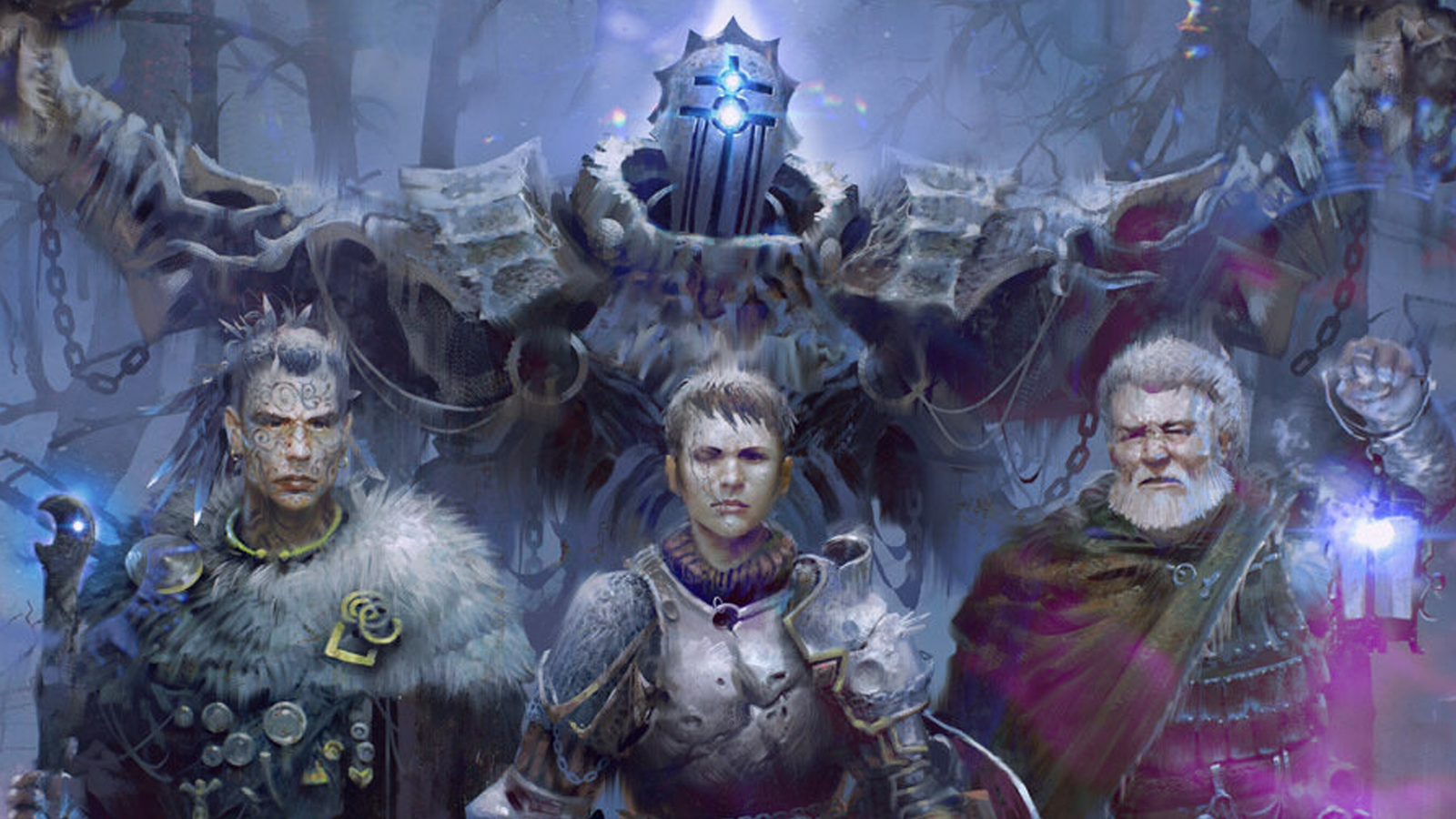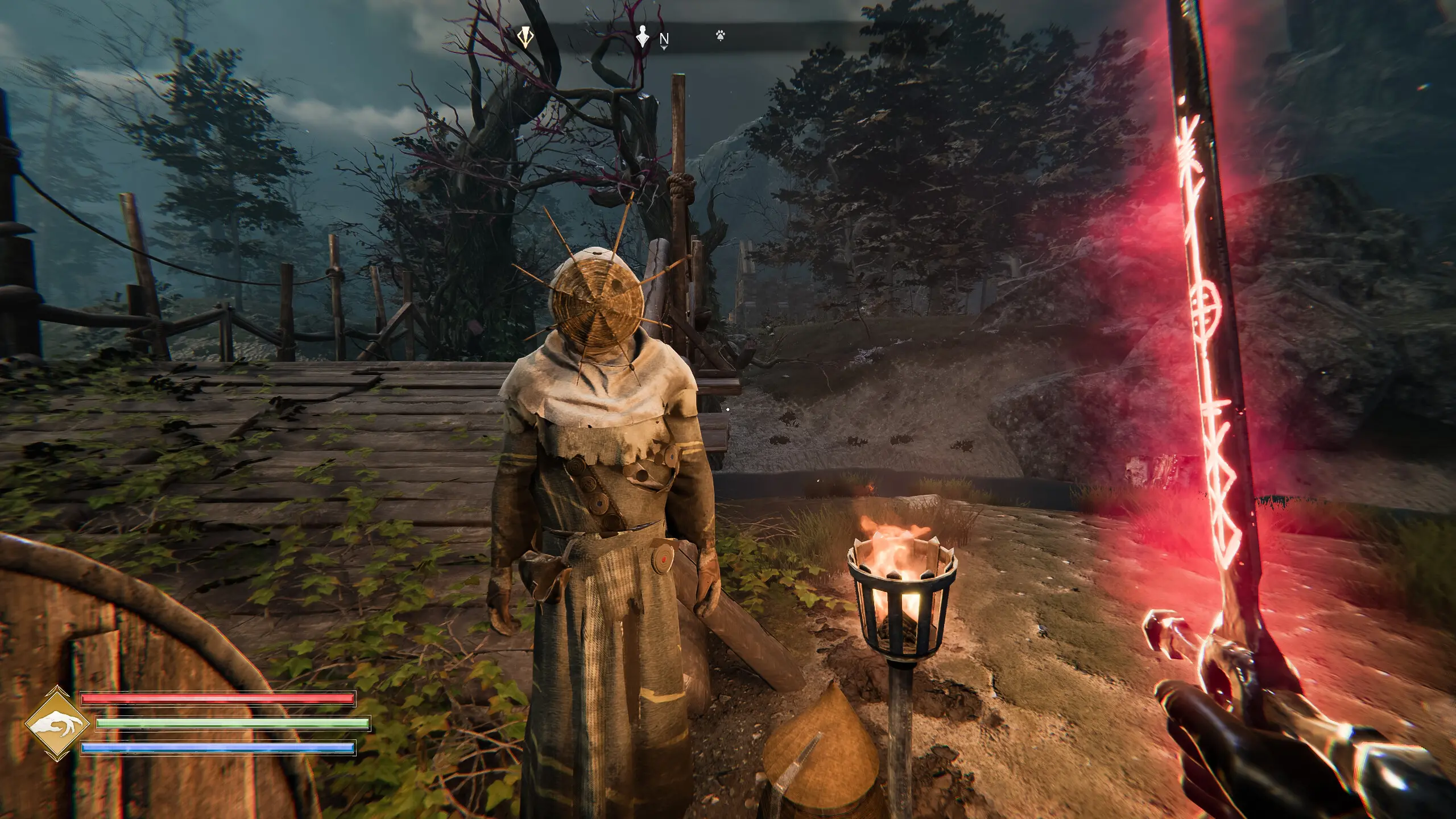
Tainted Grail: Fall of Avalon Is the Dark Fantasy Skyrim You’ve Been Waiting For
Sun May 11 2025
Welcome to a Cursed Kingdom
Tainted Grail: Fall of Avalon doesn’t offer a heroic fantasy. It drops you into the rotting corpse of one. This is a game built on the bones of legends—Arthurian myths, knightly valor, and tales of the Grail—but it digs them up, bleaches them in harsh moonlight, and dares you to find meaning in the ruin. Avalon is not a paradise. It is a world that has already lost.
Developed by Awaken Realms Digital, Fall of Avalon reimagines the Arthurian world through a grimdark lens. The island of Avalon is fractured, corrupted by an arcane force known as the Wyrd. Civilization has collapsed. Old powers have faded. What remains is a desolate landscape of shattered faith, desperate survivors, and secrets long buried beneath crumbling ruins and blood-soaked soil.
From the opening moments, the atmosphere is thick with dread. Fog creeps across the hills. Hollow-eyed villagers whisper of betrayals. Strange fires burn in forgotten groves. The sky never quite clears, and the land seems to remember every mistake ever made by its kings and gods.
This is not a fantasy playground—it’s a land begging for understanding. And you, as the latest castaway onto its shores, are thrown into the middle of a curse centuries in the making.

Characters Who Feel Broken and Real
In most fantasy RPGs, you encounter characters who stand tall—noble lords, wise mages, comedic rogues. Fall of Avalon has little interest in those tropes. Here, everyone feels wounded. Everyone has made compromises to survive. The few who still cling to hope often pay dearly for it.
The cast you meet in Avalon is a tapestry of trauma. There’s a former knight who turned to cannibalism when his garrison fell, and now seeks penance through unthinkable deeds. A blind prophetess speaks in riddles not because of mysticism, but because she’s fractured by too much truth. Bandit leaders rule not with charisma but through a shared nihilism with their followers—there is no future, only control.
But these aren’t characters written for shock value. Their stories unravel through quiet conversations, optional discoveries, and consequences that stretch long after you leave them. NPCs remember your choices. A kindness may be returned when you least expect it—or punished if interpreted as weakness.
Your allies are equally compelling. Companions come and go depending on your choices, and their loyalty is never unconditional. There is a sense that every person you meet is surviving by the thinnest margin. It makes their small victories—and tragic downfalls—resonate even more.
Combat and Choice in a Decaying World
Tainted Grail’s gameplay draws immediate comparisons to classic first-person RPGs like Skyrim, but with several key distinctions. Melee and ranged combat are central, but it’s not a power fantasy. Your strikes feel heavy, your stamina precious, and enemies hit hard. You’re not a chosen one—you’re just slightly more prepared than the monsters gnawing on your neighbors.
Blocking and dodging are essential. Spells are rare and expensive to cast. Every arrow you fire is another arrow you might not have when it really matters. Even your gear degrades over time, pushing you to scavenge, repair, and adapt.
But it’s the choices outside of combat that define the experience. Questlines regularly force moral compromises. Do you save a group of villagers hiding in a tomb from an advancing cult, knowing that doing so will draw the Wyrd’s attention to your safehouse? Do you lie to a grieving father to spare him the truth of his son’s crimes?
These aren’t binary good-or-evil paths. They’re tangled webs of cause and consequence. And the game rarely tells you if you made the “right” decision. You’ll see the results in how the world shifts around you.
Exploration also rewards patience. Avalon is a land of secrets—hidden grottos, forgotten altars, lost journals. There’s no map full of icons pointing to loot. If you want to uncover the island’s history, you have to seek it. You have to read between the lines.

The Wyrd: A World-Bending Force
The Wyrd is the corrupted heart of Avalon, and it is more than just environmental storytelling. It affects everything—from enemy mutations to the terrain itself. As you explore deeper into Wyrd-touched zones, time warps. Sound becomes distorted. Shadows stretch unnaturally. You may enter a glade under blue skies and exit into an eternal dusk.
This mechanic isn’t just for show. Wyrd corruption creates powerful monsters, affects magic, and alters gameplay systems. Some areas require you to use special relics or potions to stabilize reality, or risk being consumed by the madness that permeates the land.
It creates a tangible sense of dread. The further you venture, the less you can trust your senses. The world is fighting against itself. Against you. It turns exploration into horror. It turns combat into desperation.
And it’s beautifully executed.
Building a Survivor, Not a Hero
Character progression in Fall of Avalon reflects the game’s grim philosophy. You don’t become a legendary knight overnight. Your skills improve incrementally. Each perk and ability you gain is earned through grueling encounters and hard-earned experience.
Want to specialize in blades? You’ll have to live and die by the sword until you understand its rhythm. Prefer archery? Every arrow is a lesson in timing and patience. Magic is even rarer—drawn from ancient tomes and costly rituals that come with risks.
There’s also a survival layer to progression. Hunger, fatigue, and illness are real threats. You’ll need to rest, eat, and care for injuries. Equipment must be maintained. Resources gathered. Allies won.
It’s a slower system than most RPGs, but deeply immersive. You feel like a person struggling in a hostile world, not a superhuman mowing down evil. And when you do finally gain strength, it feels earned. You remember the battles that brought you here.
Sound, Style, and Setting
Graphically, Tainted Grail balances realism with bleak artistry. The forests are overgrown and silent. Castles are half-collapsed, their banners faded. Swamps bubble with unnatural light. It’s not a world designed to impress. It’s one built to haunt.
The soundtrack leans heavily into ambient dread—long, droning notes mixed with tribal drums and mournful choral swells. It’s not something you hum. It’s something that settles into your bones.
Voice acting is strong across the board, with major characters delivering lines with restraint and weariness that matches the setting. There’s a sincerity to the performances that elevates the writing.
And then there’s the Wyrd effects. The visual warping, the slow decay of light, the creeping colors at the edge of your vision. These small touches add a surreal flavor to every Wyrd-afflicted zone.
A New Contender in Immersive RPGs
Tainted Grail: Fall of Avalon isn’t trying to compete with the polish of AAA giants. It’s not about bombast. It’s about atmosphere, story, and consequence. It wants you to feel the weight of every footstep. The cost of every life.
Its world is richly imagined, not just in lore but in design. Its characters are human in all their flaws and failures. Its gameplay asks you to think, to plan, to survive.
This is the kind of RPG that leaves a mark. That lingers. That makes you wonder, hours later, if you did the right thing back in that crumbling chapel. If you could’ve saved the girl with the lantern. If maybe you were wrong to walk away.
It’s not for everyone. But for those who crave dark stories, immersive systems, and a world that feels alive in its decay—Tainted Grail may be exactly what you’ve been waiting for.
To explore more immersive fantasy RPGs, check out our recent features on Clair Obscur: Expedition 33 and Fantasy Life i: The Girl Who Steals Time.